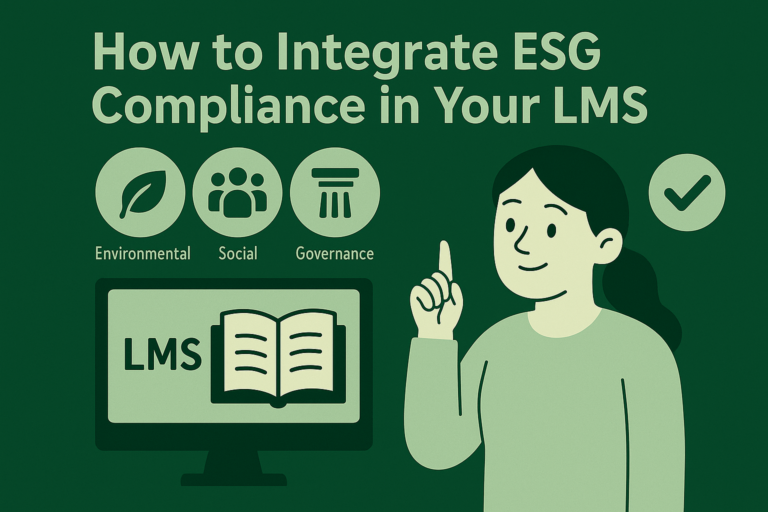At the heart of this dynamic landscape lies the role of training in Extended Enterprise, a strategic imperative that enables organizations to educate, empower, and engage their external stakeholders effectively.
In this introduction, we embark on a journey to unravel the critical importance of training in the extended enterprise. From knowledge transfer and skill development to relationship building and collaboration, training serves as a cornerstone for achieving strategic objectives and fostering mutually beneficial relationships with external partners.
By understanding and leveraging the role of training in the extended enterprise, organizations can unlock new opportunities for innovation, growth, and success in today’s competitive marketplace. Join us as we explore the multifaceted role of training in the extended enterprise and uncover strategies for driving excellence in this dynamic and interconnected ecosystem.
Training is pivotal in helping organizations extend their reach beyond internal employees to include partners, customers, suppliers, and other external stakeholders. In this comprehensive exploration, we delve into the multifaceted role of training in extended enterprise environments, uncovering its importance, challenges, and best practices for success.
Understanding the Role of Training in Extended Enterprise
Training plays a pivotal role in bridging the gap between internal operations and external stakeholders. It serves as a strategic tool for educating and empowering partners, customers, suppliers, and distributors, ultimately driving business growth and success.
Firstly, training facilitates knowledge transfer, ensuring that external stakeholders understand organizational processes, products, and standards. This is particularly crucial in industries with complex regulations or compliance requirements, where training helps ensure consistency and adherence to best practices.
Secondly, training enables skill development among external stakeholders, equipping them with the competencies needed to perform their roles effectively. Whether it’s product training for distributors, customer onboarding for end-users, or technical training for suppliers, investing in skill development fosters competence and confidence among stakeholders.
Moreover, training fosters collaboration and relationship building in the extended enterprise. By providing education and support, organizations demonstrate their commitment to the success of their external partners, fostering trust and loyalty.
Overall, understanding the role of training in the extended enterprise is essential for organizations seeking to maximize their impact and build strong, mutually beneficial relationships with external stakeholders. By investing in training initiatives tailored to the needs of their extended enterprise, organizations can drive growth, innovation, and success in today’s interconnected business landscape.
Training serves as a linchpin for achieving strategic business objectives and fostering mutually beneficial relationships with external stakeholders. Key aspects of the role of training in extended enterprise environments include:
- Knowledge Transfer: Training enables organizations to effectively transfer knowledge, expertise, and best practices to external stakeholders, ensuring alignment with organizational goals and standards. This is particularly critical in industries where compliance, safety, and regulatory requirements are paramount.
- Skill Development: By providing targeted training programs, organizations can empower external stakeholders to develop the skills and competencies necessary to perform their roles effectively. This may include product training for resellers and distributors, customer training for end-users, or technical training for suppliers and service providers.
- Relationship Building: Training serves as a catalyst for building strong, collaborative relationships with external partners, customers, and suppliers. By investing in their education and development, organizations demonstrate a commitment to their success and foster loyalty and trust, leading to long-term partnerships and increased customer satisfaction.
Challenges in Training for Extended Enterprise
Despite its importance, training in the extended enterprise presents unique challenges that organizations must navigate.
The important challenges in training for extended enterprise are:
- Diverse Audience: External stakeholders in the extended enterprise often have diverse backgrounds, skill levels, and learning preferences, making it challenging to design and deliver training programs that meet everyone’s needs effectively.
- Technology Integration: Integrating training platforms and systems across multiple organizations and stakeholders can be complex, requiring careful planning, coordination, and investment in technology infrastructure.
- Engagement and Participation: Motivating external stakeholders to actively participate in training programs can be challenging, especially if they perceive it as mandatory or irrelevant to their roles.
Best Practices for Training in Extended Enterprise
To address these challenges and maximize the impact of training in extended enterprise environments, organizations can adopt the following best practices:
- Tailored Content: Develop customized training content that is relevant, engaging, and aligned with the specific needs and preferences of external stakeholders. This may include interactive e-learning modules, video tutorials, and job aids tailored to different audiences.
- Collaborative Approach: Foster collaboration and communication between internal and external stakeholders to co-create training programs and resources. Solicit feedback and input from external partners, customers, and suppliers to ensure that training initiatives meet their expectations and requirements.
- Technology Integration: Leverage the top learning management systems (LMS) like Acadle that are designed to support extended enterprise training. These platforms offer features such as multi-tenancy, content sharing, and reporting capabilities tailored to the needs of diverse stakeholders.
Leveraging Acadle for Extended Enterprise Training
Acadle, a leading provider of learning management solutions, offers a range of features and capabilities to support training in extended enterprise environments. With its intuitive interface, customizable branding options, and robust reporting and analytics features, Acadle enables organizations to deliver engaging and effective training programs to external stakeholders.
By leveraging Acadle’s advanced technology and expertise in extended enterprise training, organizations can overcome challenges, maximize engagement, and drive success in their extended enterprise initiatives.
Conclusion: Driving Success with Training in Extended Enterprise
In conclusion, role of training in extended enterprise, serving as a catalyst for knowledge transfer, skill development, and relationship building with external stakeholders.
Despite the challenges it presents, organizations can achieve success in extended enterprise training by adopting best practices such as tailored content, collaborative approaches, and leveraging advanced technology solutions like Acadle.
By investing in the education and development of external partners, customers, and suppliers, organizations can create a competitive advantage, drive growth, and achieve excellence in today’s interconnected business landscape,



